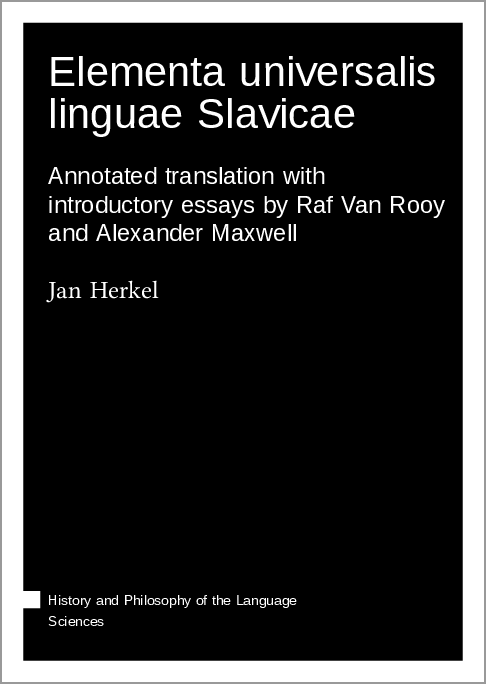We log anonymous usage statistics. Please read the privacy information for details.
Elementa universalis linguae Slavicae: Annotated translation with introductory essays by Raf Van Rooy and Alexander Maxwell
Synopsis
In 1826, as nationalism first began percolating through the Habsburg lands, Jan Herkel published a Latin-language Slavic grammar. Herkel, a lawyer and amateur linguist, came from the northern counties the Kingdom of Hungary which now form the Slovak Republic. Though he was inspired by a romantic love of his native language, Herkel imagined a single "Slavic language," divided into various "dialects." He proposed a single grammar for the whole Slavic world, attempting to encompass and yet restrain the diversity of orthography, morphology, phonology, and so forth found across Slavic varieties. Herkel was also the coiner of the term "panslavism", which he used to describe his efforts. This book provides the first English translation of Herkel's noteworthy grammar, with short notes. The book also contains a preface and explanatory essays by co-translators Raf Van Rooy and Alexander Maxwell. The preface introduces the topic of the book. Maxwell then gives a biography of Herkel, discusses linguistic nationalism in Slavic northern Hungary, and the legacy of panslavism. Van Rooy explores Herkel's key notion of the "genius" of the Slavic language as the legacy of early modern linguistic thought.




